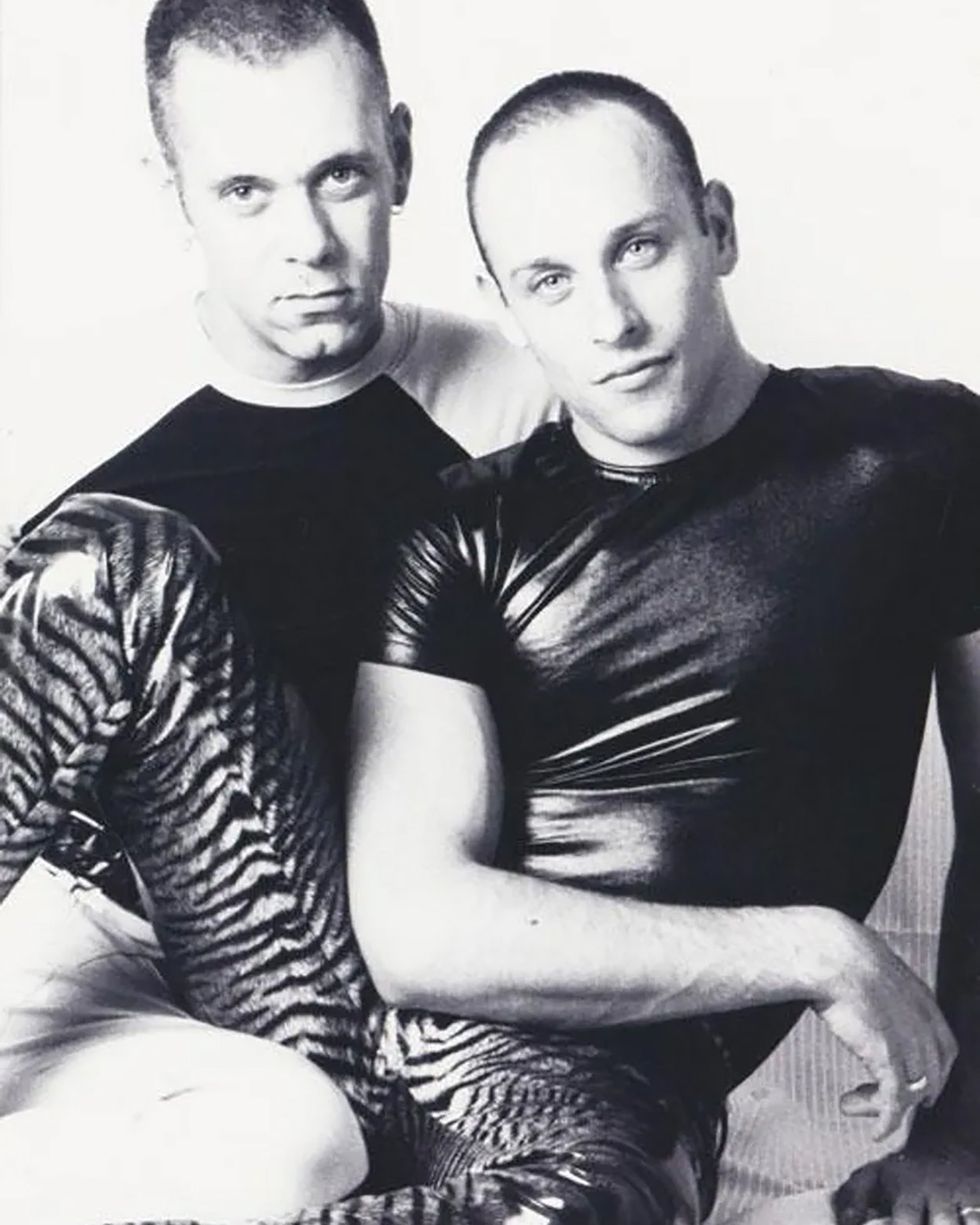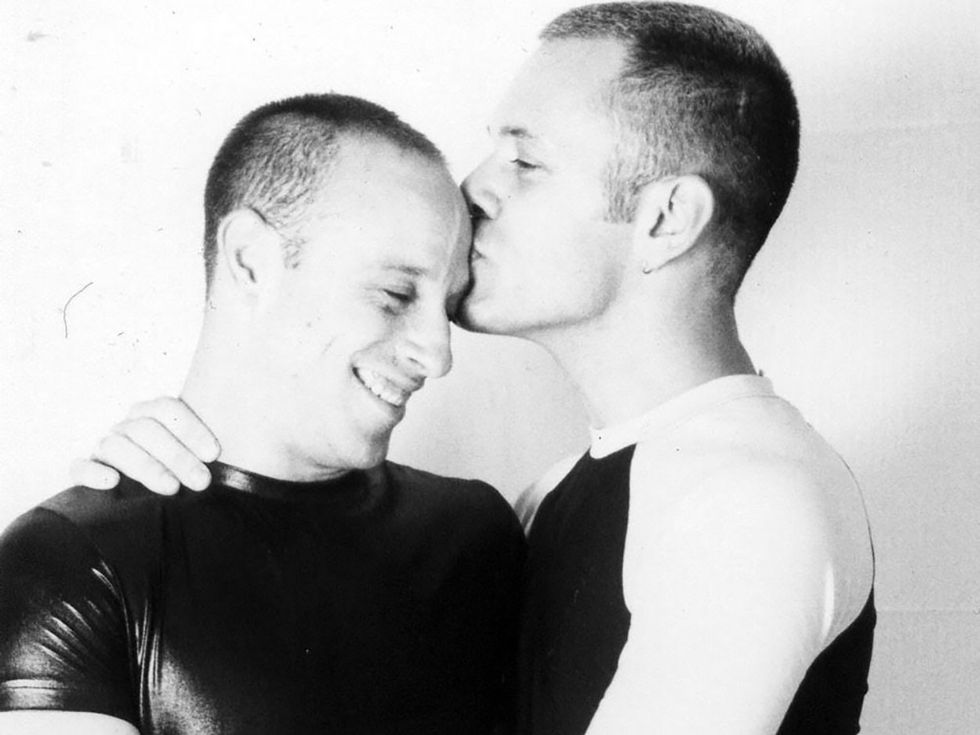People
Nasty Pig's Cofounder Reflects on Love, Sex & World AIDS Day
Nasty Pig's Cofounder Reflects on Love, Sex & World AIDS Day

courtesy Nasty Pig
courtesy Nasty Pig
David Lauterstein opens up about the AIDS epidemic, kink pride, and rubber chaps.
December 01 2023 9:11 AM EST

 David Lauterstein (left) and hubby Frederick Kearney when they started Nasty Pig in the mid-1990s
David Lauterstein (left) and hubby Frederick Kearney when they started Nasty Pig in the mid-1990s



































































Charlie Kirk DID say stoning gay people was the 'perfect law' — and these other heinous quotes